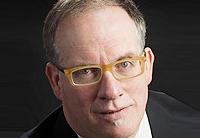DETROIT -- Toyota is leaving nothing to chance as it plunges into sales of hydrogen fuel cell vehicles next year and aims to defy those who are skeptical of the technology, says Bob Carter, senior vice president of automotive operations for the company's U.S. arm.
Carter said at the Automotive News World Congress here that Toyota will defy those who don't think fuel cell technology is market-ready and say the recharging infrastructure is too undeveloped to support the vehicles.
"I realize that there is no shortage of naysayers regarding the viability of this technology and the infrastructure to support it," Carter said. "If others want to tune out this technology, that's fine."
Critics have estimated hydrogen refueling stations will cost $1 million to $2 million apiece to build, a barrier that they say will prevent the infrastructure from developing rapidly.
Carter said those figures are misleading, and predicted that an infrastructure will quickly get up and running with ready-to-use hydrogen being shipped to existing fuel stations.
Toyota showed off its FCV fuel cell concept last week at the Detroit auto show and said the car will reach showrooms next year. It hasn't released the vehicle's sticker price.
Testing the tanks
Carter predicted hydrogen eventually will be cheaper for drivers than gasoline.
The executive said that as part of its durability testing, to see what it might take to rupture the FCV's carbon fiber hydrogen tanks, Toyota engineers fired small-caliber bullets at them. The bullets bounced off, Carter told the audience. So the engineers upgraded to 50-caliber bullets, which managed to dent and barely penetrate the material. "We wanted to know what it takes to actually pierce them," Carter said after his presentation. "It's just one of a thousand different tests we're conducting to ensure the durability of the vehicles. We want to be absolutely sure of the integrity of the systems."









